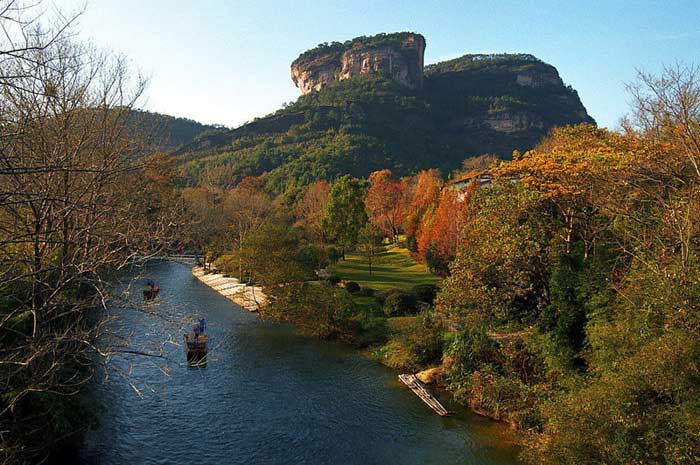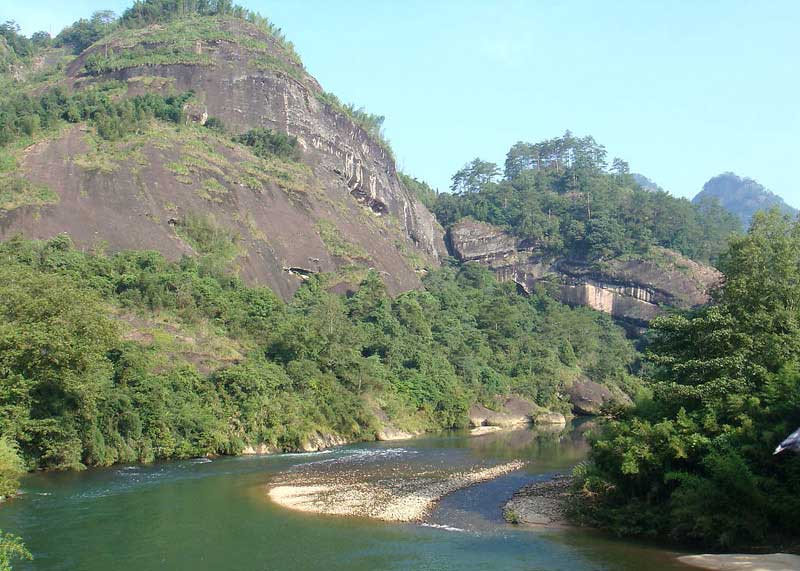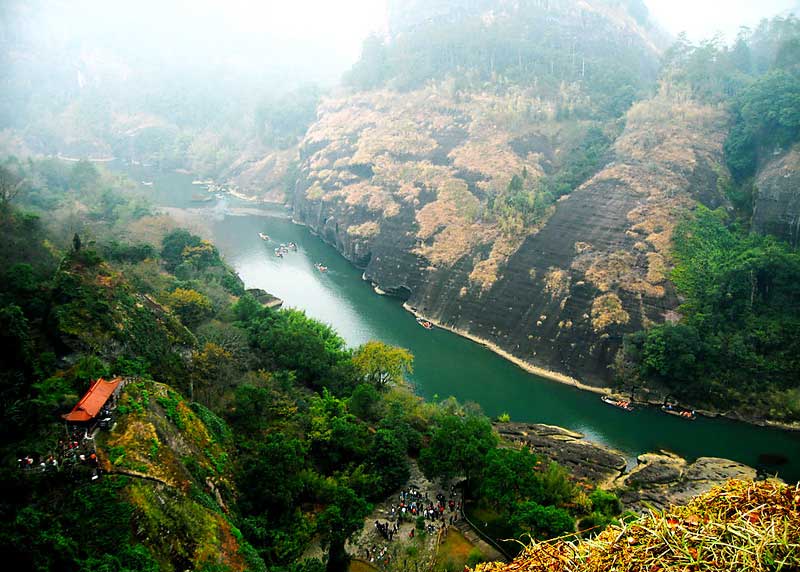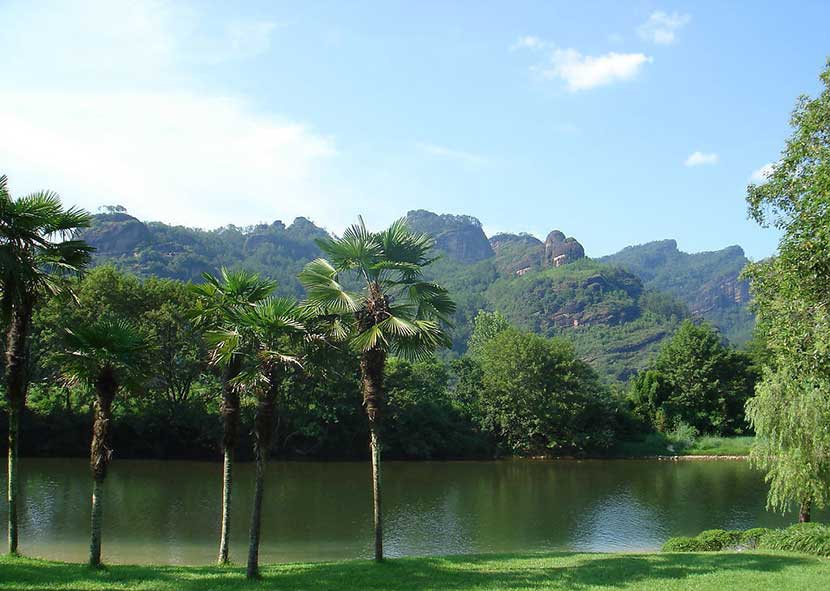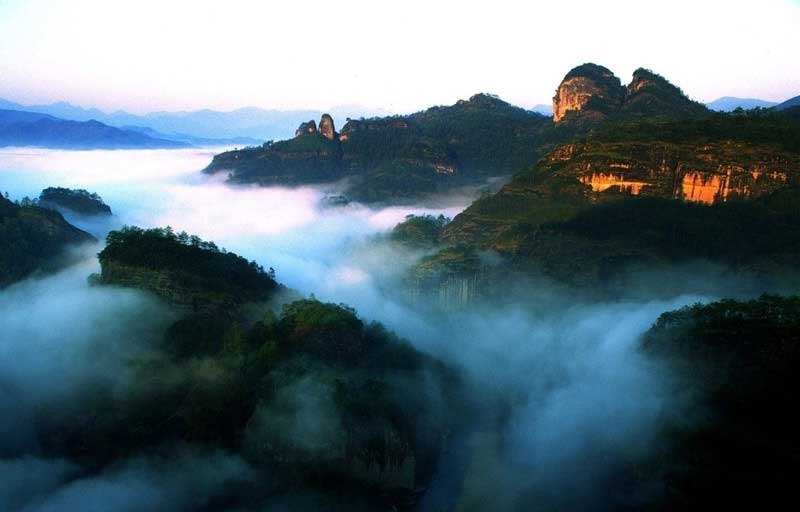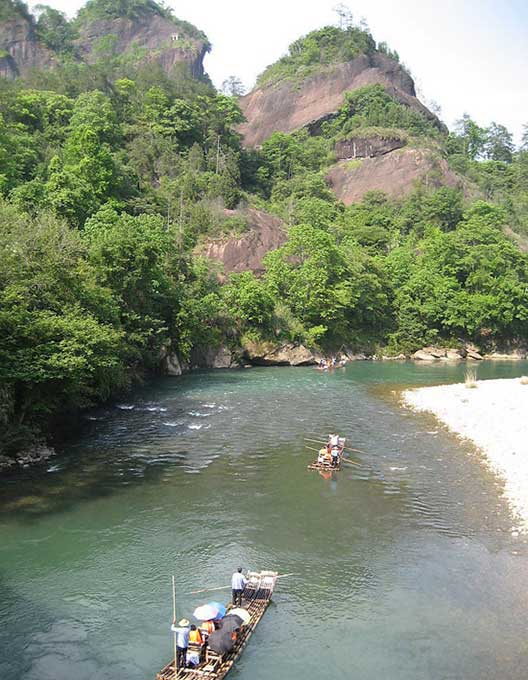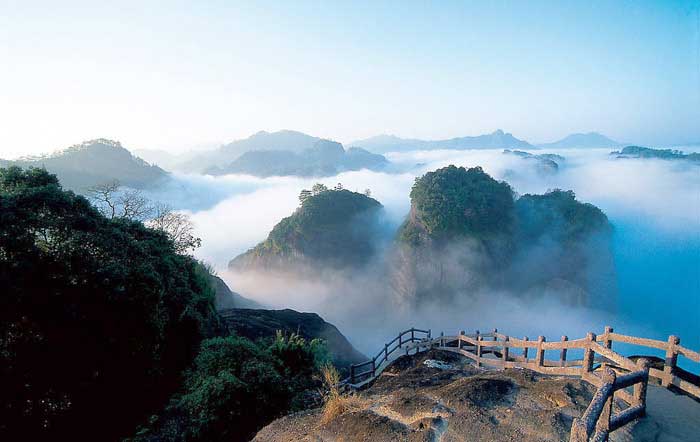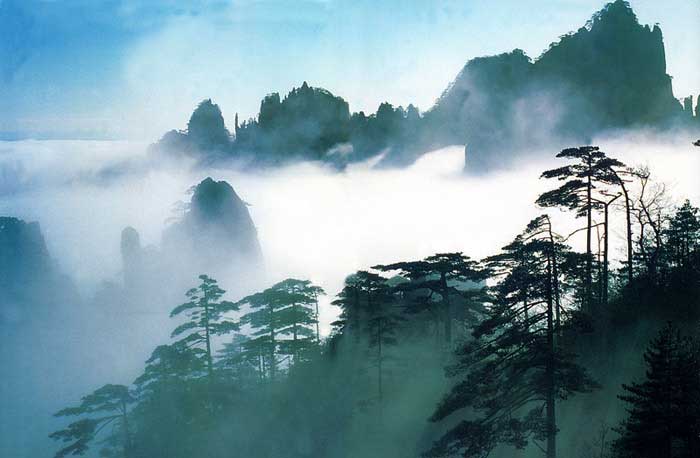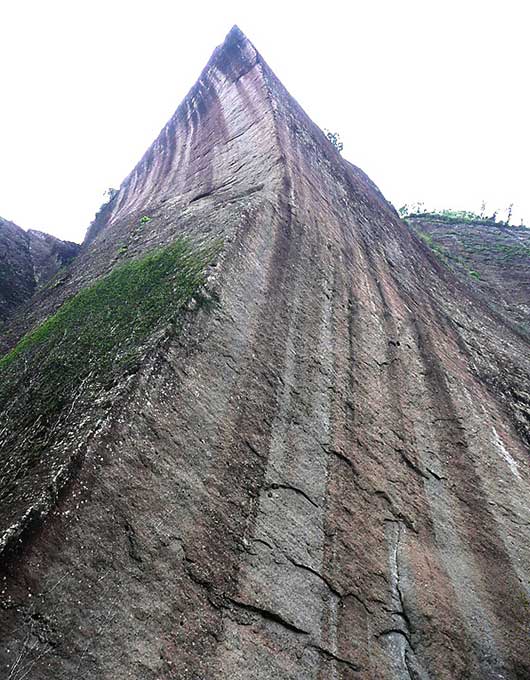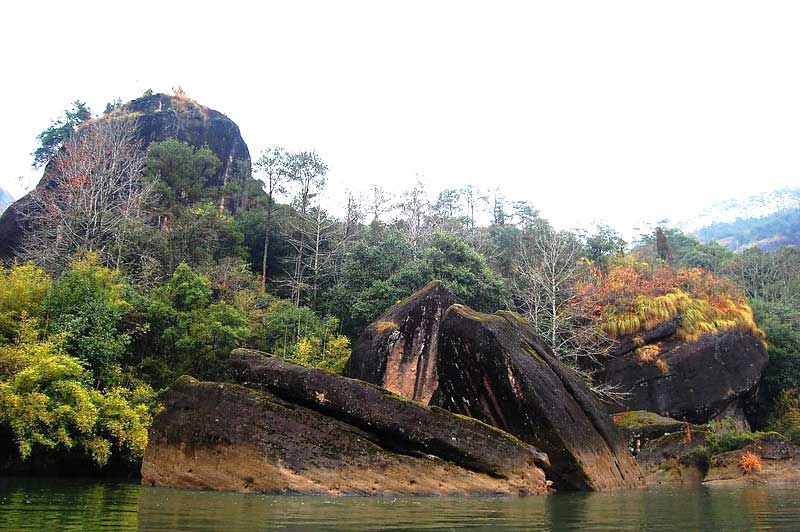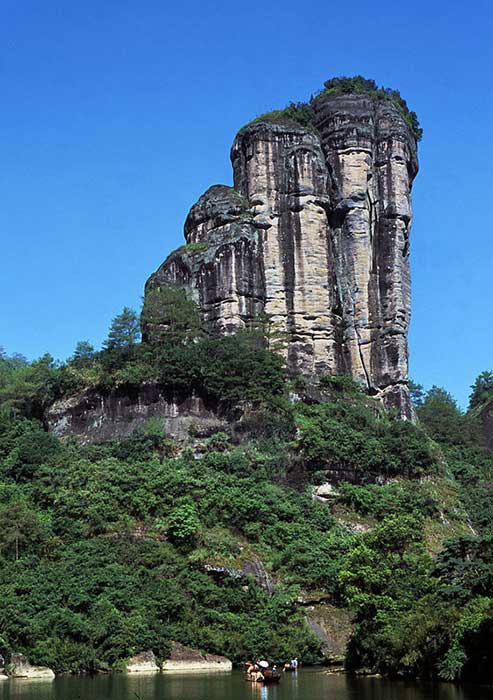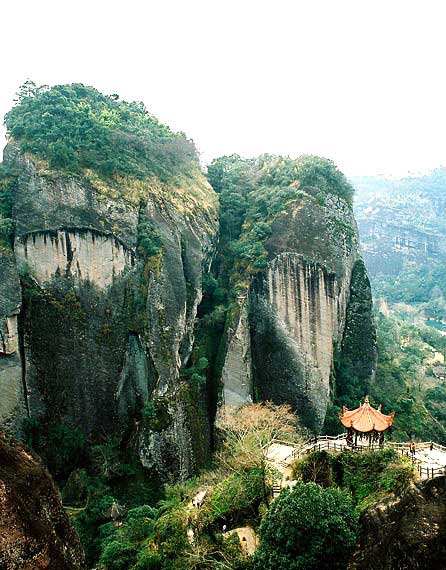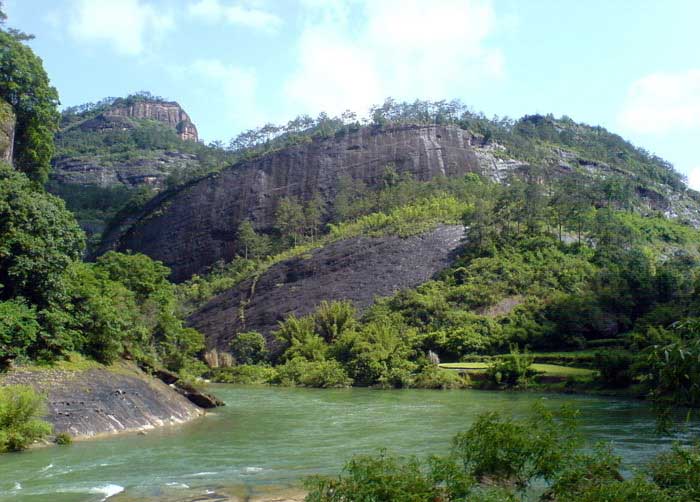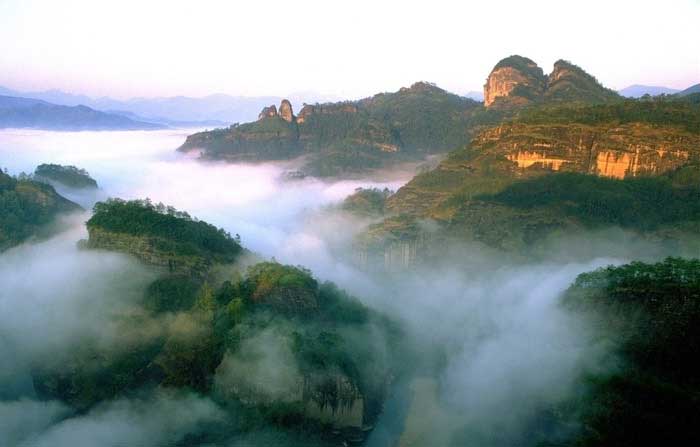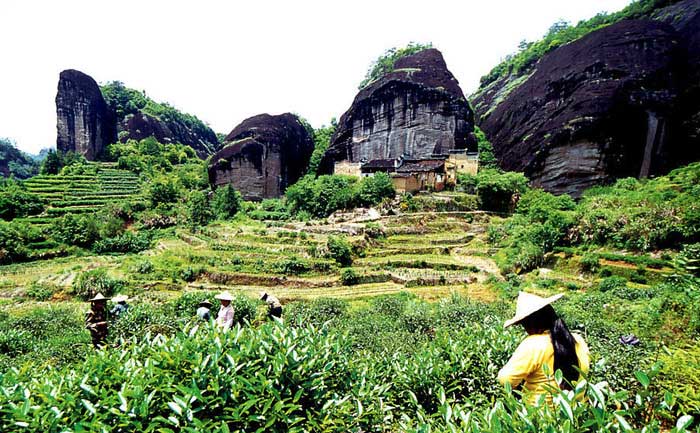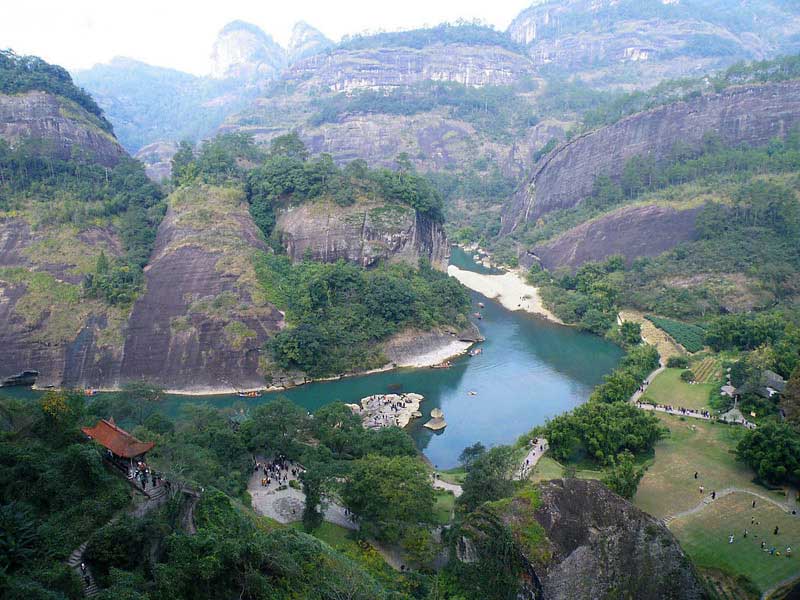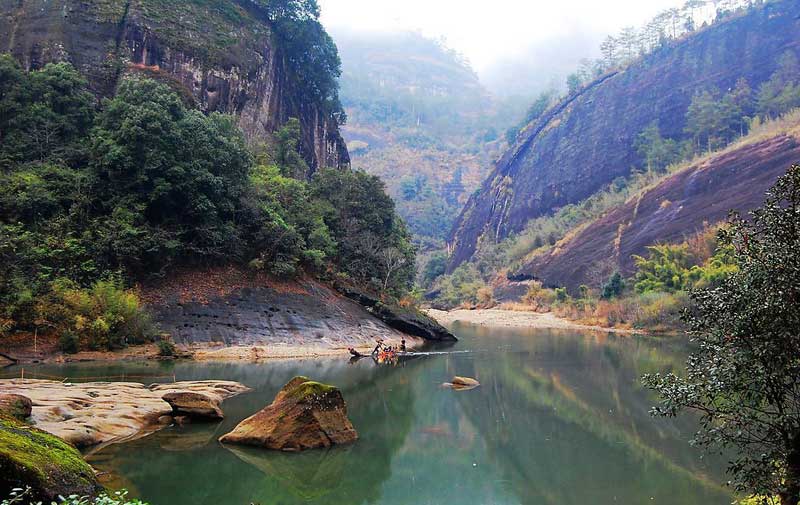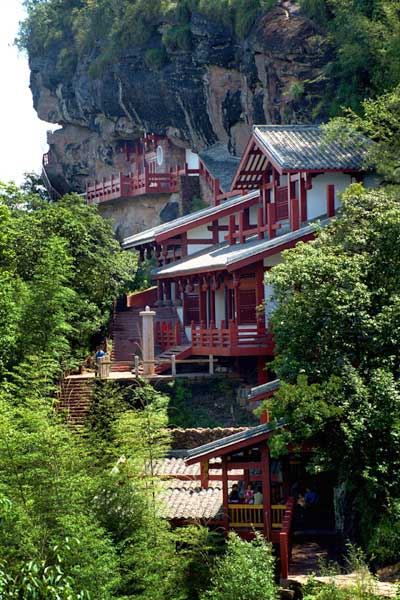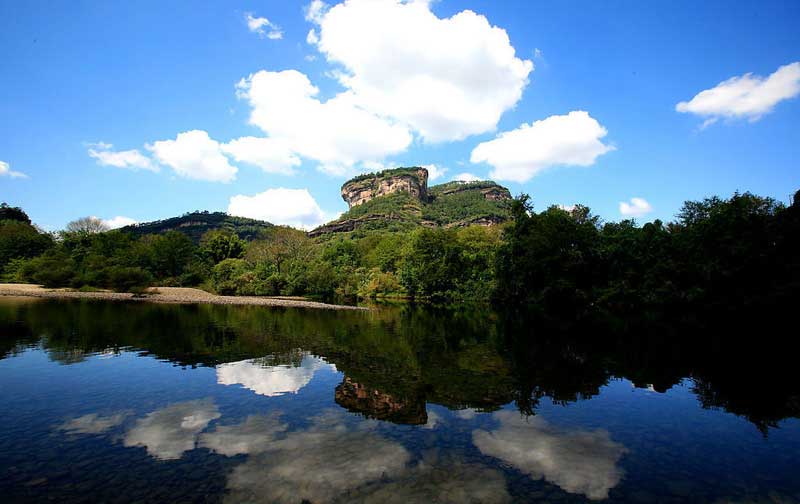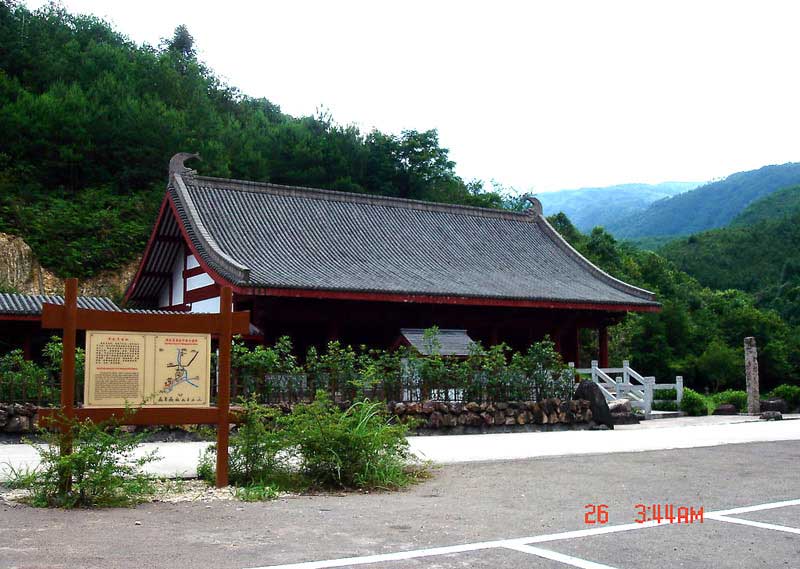Wuyi Mountains – Wuyi Shan
Wuyi Mountains is located south of Wuyishan City, Fujian Province, with an area of 70 square kilometers. The area has what is probably the largest, most typical and best-preserved humid subtropical native forest in the world.
Wuyi’s 36 graceful peaks, most under 600 metres high, are skirted by a zigzagging river called Nine Bend Creek. This naturally endowed landscape of water and hills has given the area the reputation of being the most scenic wonder in Southeast China. Since ancient times, Wuyi Mountain has attracted an endless flow of scholars, Taoist masters, Buddhist monks and travellers.
The name of the mountain originates from a story about a legendary person called Qian Keng who lived during the Shang Dynasty (16th century B.C.-11th century B.C.), believed to be the eighth generation descendant of Huangdi, the Yellow Emperor. Because of Qian Keng’s outstanding achievements, King Yao gave him the title of lord of PengCheng and thus he became known by the surname Peng. His descendants referred to him as Peng Zu (Ancestor Peng, the most famous man who gained his longevity from Taoist alchemy practice and it is heard he lived more than 800 years old). To escape from wars occurring at that time, Peng Zu took his two sons, Peng Wu and Peng Yi, to a scenic mountain area in northern Fujian. They settled down there, tilled the land and lived as farmers. Later, in memory of these first settlers to the region, people name the mountain range after the two sons, Wu and Yi, and thereafter also used the name Wuyi to refer to Peng Zu. Later Emperor Wudi of the Han Dynasty (140 B.C.- 87 B.C.) sent out envoys who travelled long distances in order to confer on Wuyi the honorific title of Master.
Following the example of Emperor Wudi, rulers of later dynasties all attached great importance to Wuyi Mountain. An altar was set up at the foot of Manting (Curtain Pavilion) Peak to offer sacrifices to Master Wuyi every year. A temple was also built there and a senior official was put in charge of all affairs related to the mountain.
Apart from the legendary figure of Peng ZU, historical documents also mention a number of well-known personages who have visited Wuyi, including scholars, politicians, poets and the famous geographer and traveller Xu Xiake.
Zhu Xi, a famous Song philosopher of the rationalistic Confucian (or Neo-Confucianism) school, went to Wuyi Mountain at the age of 14 and stayed there, writing and teaching, until his death at the age of 71. Many poets also found inspiration at Wuyi Mountain. Today, remains of ancient towns and villages, and ancient, boat-shaped coffins suspended over cliffs, can still be seen around Wuyi Mountain. The remoteness, mystery, unique local customs, and rich tourism resources of the area have drawn countless visitors. In December 1999, Wuyi Mountain was officially designated a world natural and cultural heritage site.
Covering an area of 70 square kilometers (54.4 of which are Danxia topography), the Wuyi Mountain Scenic Area has an average elevation of 350 meters, boasts 36 extraordinary peaks and is circled by the beautiful 9.5 kilometer long Jiuqu (Nine Zigzag) Stream. Wuyi Mountain is composed of hills of red sandstone and conglomerate. The scenery on both sides of the Jiuqu Stream is typical Danxia topography, with flat tops, precipitous hillsides and towering peaks. Due to the warm and humid climate, and a good ecological environment, green waters, each enhancing the lustrous beauty of the other, every view a handsome prospect.
The key Scenic Area covers of 36 peaks, 72 caves, 99 rocks and 108 scenic spots as well. The magnificent and exquisite mountains and waters are the real delight. The whole area can be subdivided into many scenic spots as Wuyi Palace, Nine Bend river, Peach Blossom Cave, A Threat of Sky, Tiger Roaring Peak, Tianxin Rock, Water Curtain Cave, Lianhua Peak, YulinTing Kiln Site.
The hazy view of Wuyi Mountains and rivers is of special appeal and prospect. The clouds and mists of Wuyi Mountain are spectacular and veiled in mystery. The sea of clouds and wove to mists surge above mountain peaks, sometimes heavy and sometimes thin, now moving and then static, which composes magnificent spectacles one after another, some as light as veil hanging among the crags, some as heavy as splashes of ink spraying the valleys, some like torrents rolling and surging, some like ripples disappearing far away, which displays all the gracefulness, colorfulness, romantic charm and appeal of Wuyi Mountain.
OPENING HOURS
| Week Days | 8:00 – 5:00 |
| Saturday | 9:00 – 5:00 |
| Sunday | 11:00 – 4:00 |





